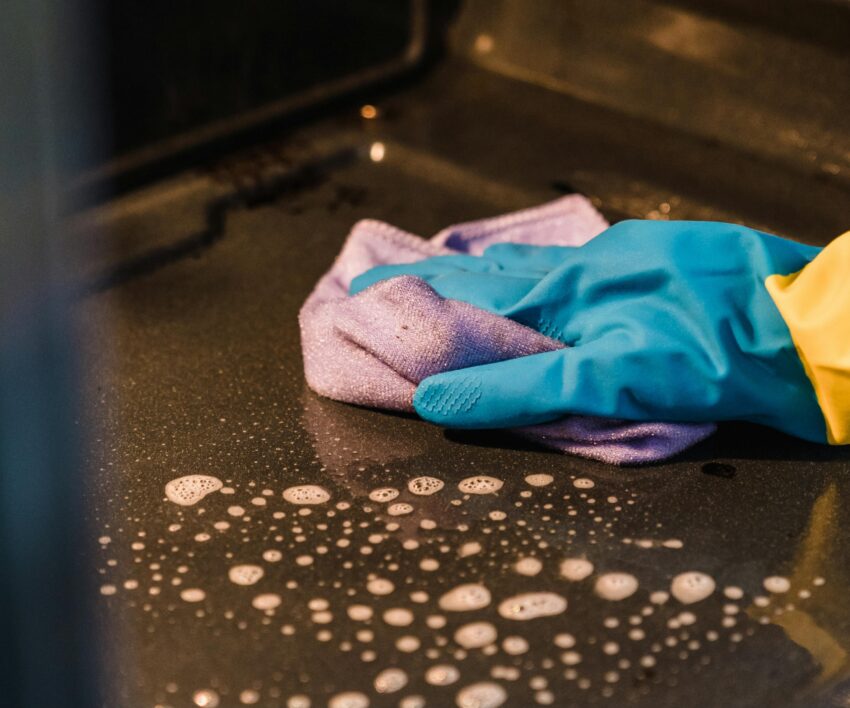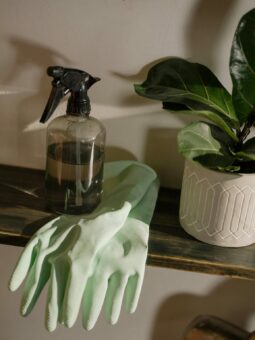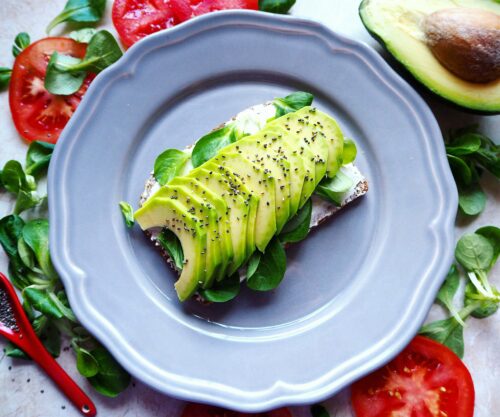
Kitchens are truly the heart of every home. A place where families bond and create special memories through the making of meals and spreading love.
A very important partner to making delicious meals and exploring culinary visions is the oven. As our ovens provide us with a means to create delight, it is essential that they too undergo some regular TLC.
Why is oven cleaning essential?
When it comes to appliances it is important to always maintain proper hygiene. These tools are prone to getting dirty. Ovens especially can be very difficult to clean due to their size and the various nooks and crannies. Regular cleaning of your oven helps to lessen the blow when it is time for an extreme deep clean.
Forming a good oven cleaning routine will also ensure the upkeep of good flavour and quality meals in terms of taste. Not cleaning or wiping down your oven after every use can leave the area of the kitchen prone to strong odours and harmful bacteria.
How to clean your oven
The first step before getting down to the cleaning, is to turn on your favourite playlist and grab a good pair of cleaning gloves and a washcloth. If you are looking for an alternative to chemicals that will provide just as good of a deep clean, then look no further from your pantry.
Bicarbonate of soda or baking powder are not just simple ingredients used in your favourite sweet treats or meals. They are also great for removing stubborn stains and dirt.

Bicarbonate of soda
1.) Take your preferred brand of bicarb and mix it with some water to form a paste. The ratio of this mixture should be at a 1:1 ratio.
2.) Apply the paste to the interior or inside of your oven where there are any stains or residue and allow the mixture to work its magic.
3.) Only leave the paste on for a maximum of 30 minutes. A good indicator that it’s time to remove the paste is to look out for any foaming.
Vinegar
1.) Vinegar is also a great option for cleaning and removing dirt in the oven. Simply mix the vinegar with your regular dishwashing liquid and apply it to the inside of your oven.
2.) Allow for it to settle, then wipe down the area with a damp cloth.
Salt
1.) Salt is a great option for a thorough clean especially when it comes to the baking trays and the bottom shelf of the oven. Removing any burnt residue or spots with salt is a great option for a chemical free clean.
2.) Apply the salt to the baking tray or bottom shelf, making sure the desired area is covered in a good amount of salt.
3.) Once the dirty area is thoroughly covered in the salt, turn the oven on and allow for the salt to turn brown at a low temperature of 50 degrees celsius.
4.) Once the salt is brownish in colour, turn the oven off and once cooled down wipe the area with a cloth to remove any salt residue.
Oven plates
Once the inside of your oven is clean it is time to move to the plates and top area. This area like the interior can too be cleaned with bicarb or baking powder.
1.) Take two teaspoons of the baking powder and add it to a bowl of lukewarm water. Wipe the area of the plates down with a cloth and allow for this to sit.
2.) Once you feel the area is clean wipe down the surrounding area and plates with a dishcloth and some dishwashing liquid.

How often should an oven be cleaned
It is recommended that ovens should be regularly deep cleaned every 3 months if you are actively baking and cooking meals. If you do not use your oven often then every 6 months. To save your knees and back, during a deep clean try to wipe down your oven and plates after every use, to make it easier when the time comes for the ovens next deep clean.
Compiled by Katelin Maggot
First published by Food and Home
Also see: Tips on how to make cleaning dishes easier and fun




